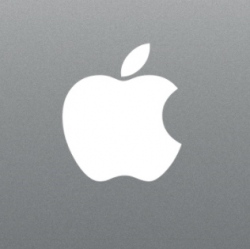
Artificial intelligence is quickly becoming an integral part of every tech company’s strategy, so it’s no surprise that big firms are ramping up their acquisition of AI startups. M&A activity has already seen a fivefold increase in the number of AI startup acquisitions, from 22 in 2013 to 115 in 2017.
While the race is far from over, Google and Apple have acquired the most AI startups since 2012.
Since 2012, Google has been looking to acquire top innovative AI startups with promising futures. In 2013, Google picked up deep learning and neural network startup DNNresearch from the computer science department at the University of Toronto to make major upgrades to its image search feature. In 2014, the search giant acquired British learning algorithm startup, DeepMind Technologies, for a total of $500 million.
The company later rebranded it to Google DeepMind. Google’s DeepMind program AlphaGo was able to defeat a human world champion in the board game Go. In 2016, Google’s acquisition of natural language processing startup API.ai powered several of Google Assistant’s capabilities.
Google’s closest competitor in the AI race is Apple. Through its acquisition of Siri in 2010, Apple popularized AI assistants and became one of the earliest players in the AI space. But Apple’s M&A activity slowed down for several years after the Siri acquisition. In fact, some have even accused Apple of “struggling in AI.” The problem may be tied to the company’s strong stance on privacy. Unlike Google and Facebook, Apple does not build user profiles. To unleash the full power of AI and improve existing offerings, data collection becomes crucial. Apple’s strong privacy protections present a problem as the company attempts to build core AI-driven solutions.
Although Apple is selective and secretive with its acquisitions, it remains in a tight race with Google. With 13 acquisitions under its belt, Apple most recently nabbed Pop Up Archive. Prior to its acquisition, Pop Up Archive developed tools to search and organize audio files, using machine learning to convert speech to text and crowdsourcing the task of fixing transcription errors. In 2017, Apple acquired quite a few AI startups, including RealFace for $2 million, Lattice for $200 million, and SensoMotoric Instruments and Regaind for undisclosed sums.
A rising demand for AI-driven solutions and a growing need for big data has created an extraordinary appetite for AI startups across all industries. Collectively, the 10 largest tech companies have acquired over 50 AI startups. With established corporations facing an acute shortage of AI talent, the skills gap remains a significant barrier to AI adoption. The race for AI will only get tighter and stronger.
